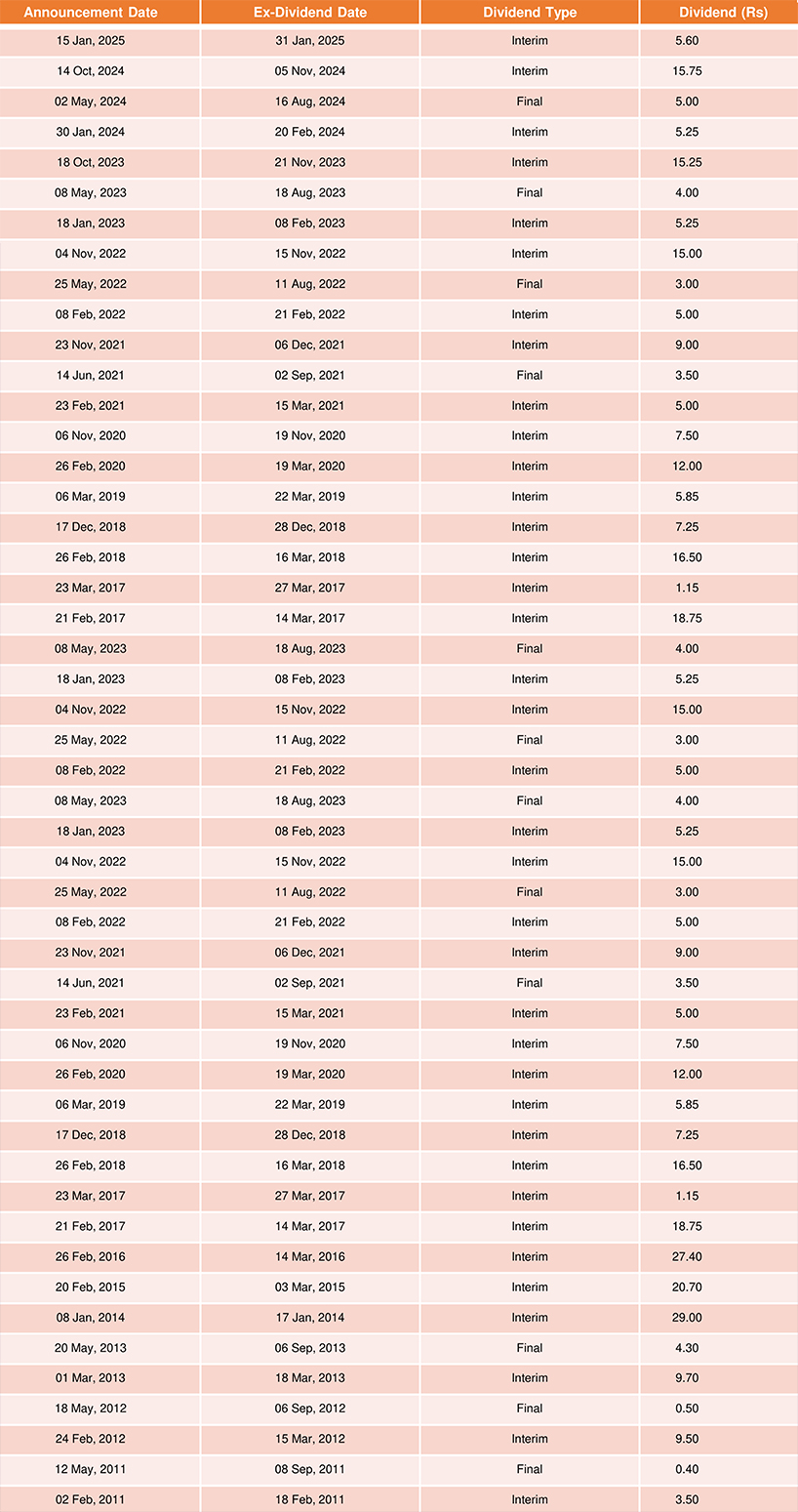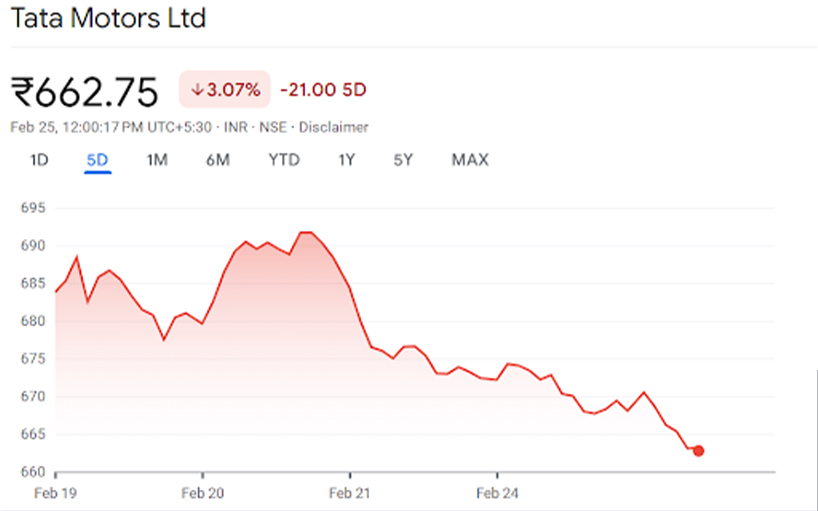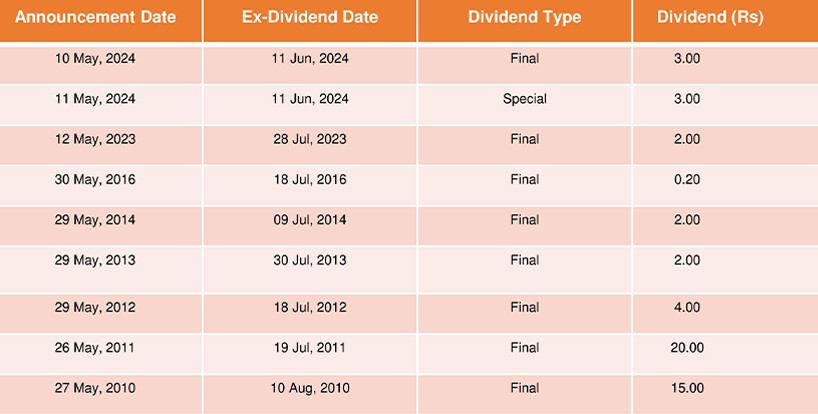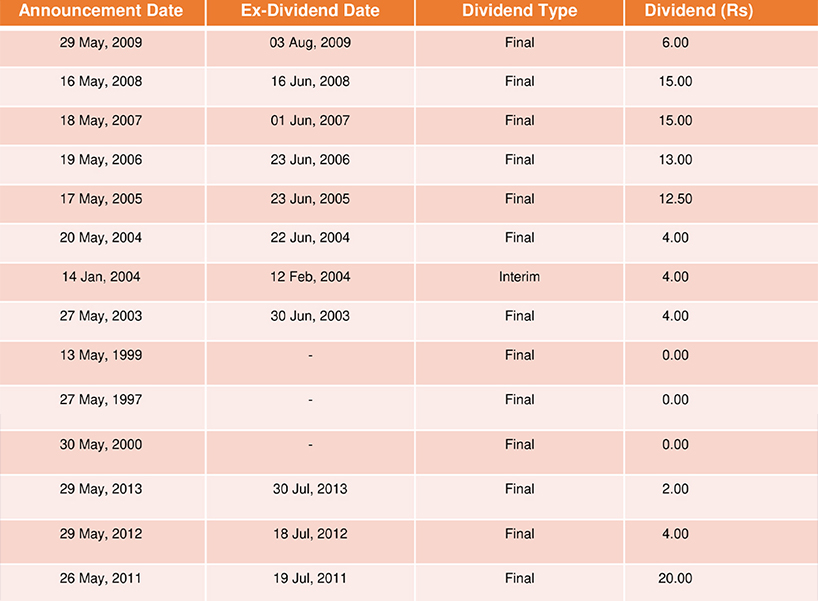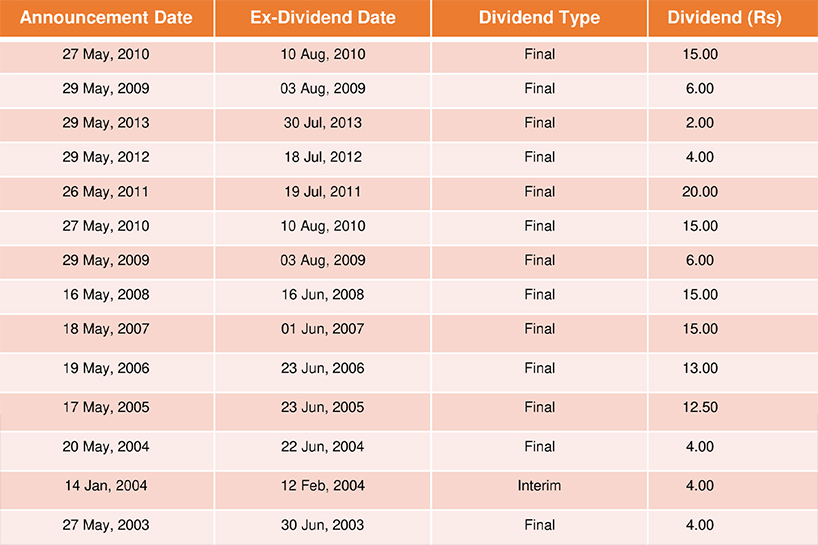Terms and Conditions for WEALTH SAMADHAN Digi-Info Shared Wallet Facility
1. These terms & conditions shall hereinafter be referred to as “Shared Wallet” or “ Wealth Samadhan Subscription” Terms.
For the purpose of the Shared Wallet Terms the following terms shall have the meaning as assigned to them herein.
WEALTH SAMADHAN Private Limited including its wholly owned subsidiaries shall be hereinafter referred to as 'WEALTH SAMADHAN
"Content" with respect to WEALTH SAMADHAN digi-Info shall mean such information / documents in word / PDF and JPG format which have been uploaded by the Subscriber / User and such other formats which may be permitted by WEALTH SAMADHAN from time to time, under WEALTH SAMADHAN digi-Info services.
"Shared Wallet" or “Wealth Samadhan Subscription” shall mean an online storage and sharing facility available on WEALTH SAMADHAN platform and WEALTH SAMADHAN website www.sharesamadhan.com / www.sharesamadhan.org / mobile application. Here Customer/s and WEALTH SAMADHAN can view, upload, download, and store the Content in such format and in such manner as permitted by WEALTH SAMADHAN from time to time.
"Subscriber" with respect to WEALTH SAMADHAN digi-Info shall mean such Customer/user who avail WEALTH SAMADHAN digi-Info Facility subject to agreeing and abiding to the WEALTH SAMADHAN digi-Info T&Cs in the manner specified by WEALTH SAMADHAN from time to time.
If you do not accept these terms, do not use this site and do not download any materials from it.
TRADEMARK INFORMATION
The term WEALTH SAMADHAN including its logo is protected by Trademark
2. The Customer/s understand and agree that WEALTH SAMADHAN may levy a charge for the use of WEALTH SAMADHAN digi-Info Shared Wallet Facility and other allied services including annual subscription fees, if any and the Customer/s agrees to pay such charges without demur when called upon to do so.
3. The Subscriber agrees to be solely responsible for the Content shared / uploaded by him / her. The Subscriber agrees that it shall be responsibility of the Subscriber to ascertain after sharing each information /upload that the Content attempted to be shared / uploaded by him / her has been correctly done and provided so.
4. The Subscriber shall have no right of property in the WEALTH SAMADHAN digi-Info Shared Wallet or any other related technology but only an exclusive right to access and use the WEALTH SAMADHAN digi-Info Shared Wallet in accordance with applicable terms and conditions. The Subscriber shall not assign or sublet the WEALTH SAMADHAN digi-Info Shared Wallet or any part of it, nor permit it to be used for any purpose other than for uploading, downloading, viewing and storing the Content or sharing the Content with WEALTH SAMADHAN .
5. The Subscriber shall ensure that the Content is at all times clear and free of virus, worms or any code of destructive nature. The Subscriber shall not upload in the WEALTH SAMADHAN digi-Info Shared Wallet any Content that is defamatory, pilfered, illicit, unsafe, offensive in any nature or otherwise objectionable or contrary to public interest, public order or national harmony or law of land in any respect.
6. The Subscriber / User may at any time unsubscribe from the WEALTH SAMADHAN digi-Info Shared Wallet Facility by intimating to WEALTH SAMADHAN in this regard. Upon a Subscriber / User, who is a Common Customer, unsubscribing from WEALTH SAMADHAN digi-Info Shared Wallet facility from either WEALTH SAMADHAN website, he shall not be able to access the WEALTH SAMADHAN digi-Info Shared Wallet Facility from either WEALTH SAMADHAN logged in section any further after unsubscribing It shall be the Subscriber / User's responsibility to download the Contents from the WEALTH SAMADHAN digi-Info Shared Wallet Facility before unsubscribing the WEALTH SAMADHAN digi-Info facility. In the event the Subscriber / User fails to do so then WEALTH SAMADHAN shall not be liable for any loss / damage / harm that may be caused to the Subscriber / User as a result thereof.
7. For reasons of serious or critical necessity WEALTH SAMADHAN reserves the right of suspending or terminating the WEALTH SAMADHAN digi-Info Shared Wallet Facility for such period as it may deem fit or consider necessary. WEALTH SAMADHAN shall not be liable for any damage or loss resulting from or in relation to the Subscriber/s inability to access the WEALTH SAMADHAN digi-Info Shared Wallet for any reason whatsoever.
8. The Subscriber appreciates that access to the WEALTH SAMADHAN digi-Info Shared Wallet is provided through a combination of computer systems and technologies. Thus there exists a possibility of communication failure or system problems due to which the Subscriber may not be able to temporarily access the WEALTH SAMADHAN digi-Info Shared Wallet. The Subscriber agrees not to hold WEALTH SAMADHAN liable for any loss / damage / harm resulting due to the same or any other reason.
9. The subscriber understand that the services relating to investment research including assisting subscriber to arrive at the valuation of various investments done by the subscriber also assisting them searching their investments in various financial instrument and assets etc are subjective and indicative in the nature. WEALTH SAMADHAN does not assure about the authenticity and correctness such research and valuation. The subscriber need to apply their own judgement in taking decision for arriving at logical conclusion and deciding the next course of action.
10. The Subscriber agrees that WEALTH SAMADHAN may at any time, at its discretion and without assigning any reason call upon him / her to remove the Content from the said WEALTH SAMADHAN digi-Info Shared Wallet and the same will not be objected by the Subscriber.
11. The Subscriber agrees that WEALTH SAMADHAN may call the subscriber and also contact / communicate them via text, message, email, telephone, mobile, mobile push notification or any alike means of communication which will be available with WEALTH SAMADHAN . The subscriber even if who has opted for DND, hereby agrees that WEALTH SAMADHAN may contact them anytime. WEALTH SAMADHAN will try to communicate to subscriber various development relating to investments , regulatory development, news, some tips to secure investment and also communicate / offer any potential benefit arising out of tie-up with any organisation.
12. In No event will WEALTH SAMADHAN be liable for any damages whatsoever (including, without Limitation , damages for lost profits, Loss of revenue, business revenue, business interpretation or Loss or damage to data)arising out of the use of this website or any materials appearing on its pages
13. Upon Subscription, the subscriber will not be eligible for any refund in case of any network problem, breakdown of machinery, unclear network, disruption in the network and/ or payment gateway errors. However, the subscriber should inform the customer service team of WEALTH SAMADHAN about the defective content/ technology issue etc. so that the Company takes effective measures to ensure that the defect doesn’t occur.
14. The Subscriber agrees that WEALTH SAMADHAN does not verify the authenticity of the information shared by the subscriber.
15. Notwithstanding anything to the contrary in Section 152 of the Indian Contract Act, under no circumstances shall WEALTH SAMADHAN be responsible for any loss / deterioration / damage to the Contents caused by any reason whatsoever. The Subscriber understands that he / she shall be responsible for maintaining the necessary alternate backup of the Content. In the event the Subscriber fails to do so then WEALTH SAMADHAN shall not be liable for any loss / damage / harm that may be caused to the Subscriber as a result thereof.
16. In case the Subscriber does not pay the fees of WEALTH SAMADHAN which may be notified from time to time by WEALTH SAMADHAN then the facility of accessing the digi-Info Shared Wallet will be automatically barred.
17. WEALTH SAMADHAN reserve the right to expel / restrict the uploading any of its Content that they may decide in their sole and absolute discretion to be in violation of the Shared Wallet Terms. WEALTH SAMADHAN , without any notice shall also reserve the right to immediately deactivate the WEALTH SAMADHAN digi-Info Shared Wallet Facility being availed by the Subscriber in the event the Subscriber is in violation / breach of any declaration / obligations made / provided herein and / or breach of any / all applicable terms and condition governing his / her relationship with WEALTH SAMADHAN .
18. The Subscriber undertakes to keep indemnified WEALTH SAMADHAN , its directors, employees, promoters, representatives and assignees against all direct, indirect, consequential loss / damage / harm (including but not limited to liabilities, judgments, damages, losses, claims, costs and expenses, including attorneys fees and expenses) suffered by WEALTH SAMADHAN , its directors, employees, promoters, representatives and assignees, arising from any act or omission of the Subscriber or due to any breach of the Shared Wallet Terms or other applicable terms. The provision of indemnity as stated herein shall survive the termination of the WEALTH SAMADHAN digi-Info Shared Wallet Facility availed by the Subscriber.
19. The Subscriber hereby agrees to be contacted / informed via phone / mobile / text / email other any other similar mode of communication which will be available with WEALTH SAMADHAN .
20. WEALTH SAMADHAN reserves the sole and absolute discretion to withdraw, alter, amend or supplement any of the Shared Wallet Terms & condition at any time without any prior information.By using the WEALTH SAMADHAN digi-Info Shared Wallet Facility after the modified Shared Wallet Terms have come into effect and the Subscriber shall be deemed to have accepted the modified Shared Wallet Terms.
21. The Subscriber hereby warrants that the Content stored by him in the WEALTH SAMADHAN digi-Info Shared Wallet does not infringe any rights (including but not limited to intellectual property rights) of third parties. Without prejudice to the generality of the foregoing the Subscriber agrees not to infringe any patent, copyright, trademark, trade secret, privacy or other intellectual, personal or proprietary rights of third parties, supply, store any libellous, abusive, obscene material or disparage the products or services of any third party including WEALTH SAMADHAN .
22. The Subscriber shall be solely responsible for any/all issues/claims/disputes/complaints arising out of or in connection with the Content posted, uploaded or stored in the WEALTH SAMADHAN digi-Info by the Subscriber and any/all such issues/claims/disputes/complaints shall not constitute a claim against WEALTH SAMADHAN .
23. The Shared Wallet Terms shall be governed by the laws of India and any dispute, legal action or proceedings arising out of the same shall be referred to the courts or tribunals at Delhi in India and the Subscriber irrevocably submits himself to the jurisdiction of such courts and tribunals.
24. The Subscriber undertakes and authorises WEALTH SAMADHAN and its Group Companies / associates / entities to exchange, share or part with all the information, data or documents relating to his/her application to other WEALTH SAMADHAN Group Companies / banks / Financial Institutions /Broking houses/ Credit Bureaus / Agencies / Statutory Bodies /Tax authorities /Central Information Bureaus/ such other persons as WEALTH SAMADHAN / its Group Companies may deem necessary or appropriate as may be required under applicable laws / regulations, for providing any service to the Subscriber, for using or processing of the said information / data by such person/s or furnishing of the processed information / data / products there of to other Banks / Financial Institutions / credit providers / users registered with such persons and shall not hold WEALTH SAMADHAN / its Group Companies liable for use of this information.
25. WEALTH SAMADHAN shall be entitled to sell, assign or transfer WEALTH SAMADHAN 's rights and obligations under the Shared Wallet Terms to any person / entity of WEALTH SAMADHAN 's choice in whole or in part and in such manner and on such terms and conditions as WEALTH SAMADHAN may decide or deems fit. Any such sale, assignment or transfer shall conclusively bind the Subscriber and all other persons. The Subscriber, his heirs, legal representatives, executors, administrators and successors are bound by the Shared Wallet Terms. WEALTH SAMADHAN may sub-contract and employ agents to carry out any of its obligations under this contract. However, the user shall not be entitled to transfer or assign any of his rights and obligations hereunder.
26. WEALTH SAMADHAN shall make reasonable efforts to advise from time to time the Internet software such as browsers, which are required for availing of WEALTH SAMADHAN digi-Info Shared Wallet. There will be no obligation on WEALTH SAMADHAN to support all or any versions of the internet software as may be required for offering WEALTH SAMADHAN digi-Info Shared Wallet. The Subscriber acknowledges that the software underlying the WEALTH SAMADHAN digi-Info Shared Wallet as well as other internet related software which are required for accessing WEALTH SAMADHAN digi-Info Shared Wallet are the legal property of the respective vendors / WEALTH SAMADHAN . The permission given by WEALTH SAMADHAN to access WEALTH SAMADHAN digi-Info Shared Wallet will not convey any proprietary or ownership rights in such software. The Subscriber shall not attempt to modify, translate, disassemble, decompile or reverse engineer the software underlying WEALTH SAMADHAN digi-Info Shared Wallet or create any derivative product based on the software.
27. Any offer by WEALTH SAMADHAN relating to Cash back / future adjustment of subscriber registration fees against future services to be availed by the Subscriber is only tenable in case Subscriber avail services of WEALTH SAMADHAN at a fees proposed by WEALTH SAMADHAN for assisting client or its legal heir / family member to recover the investment . No cash back in the form of money will be paid to the subscriber.
28. The subscriber agrees that in case of any eventualities or death of the subscriber, the information will not be shared with any of the family person or close friend or relative unless WEALTH SAMADHAN is reasonably sure about the identity of the family or legal heir and WEALTH SAMADHAN also reserves the right to seek conclusive evidence of the eventualities or death of the subscriber. Once proper KYC being done then only WEALTH SAMADHAN may share the information to the family member or close friend or relative of the subscriber.
29. The subscriber agrees that in case his / her mobile number is not reachable or wrongly provided then WEALTH SAMADHAN will contact their family person at the mobile number given by them and get you coordinates or will speak to the subscriber through the family person. WEALTH SAMADHAN may also reach out to the subscriber by contacting the person whose details has been provided as emergency contact number.
30. The subscriber agrees that the Initial amount charged is towards Registration fees for giving the facility to store data and other services are free and that can be withdrawn by WEALTH SAMADHAN. Annual subscription fees will be applicable at a fees decided by WEALTH SAMADHAN.
31. Wealth Samadhan Card may be issued to the Paid Subscriber who avails the facility of Shared Wallet which will just contain the name of the subscriber along with unique ID. While WEALTH SAMADHAN will ensure due diligence before sharing any info to the card holder, WEALTH SAMADHAN will not be responsible for the misuse of Wealth Samadhan Card.
32. Some time the potential subscriber may share the basic information to enable WEALTH SAMADHAN to create their account for Wealth Samadhan membership. The account information including user id and password is being mailed to the subscriber in his / her email id. They may wish to revert to WEALTH SAMADHAN in case they do not want to become member of the Wealth Samadhan subscription.
33. In case the subscriber feels that he / she did not share any information for wealth samadhan subscription and he / she gets any mail of registration then they can respond to WEALTH SAMADHAN in case they do not wish to continue the subscription of Wealth samadhan subscription. Non-receipt of any revert from the subscriber will tantamount to their acceptance of the subscription service of Wealth Samadhan card.
34. In case some one share your information with WEALTH SAMADHAN without your concurrence and you receive the intimation about the same through email , phone or message then you reserve the right to inform us for deactivation of your subscription else you will continue to be Wealth Samadhan subscriber with us.
35. The subscriber agrees to receive communication from WEALTH SAMADHAN and its associates from time to time.
36. WEALTH SAMADHAN may invite person to become wealth samadhan subscriber by sending them USER ID and Password at their email id. In case subscriber wish not to continue with wealth samadhan subscription then it can be communicated to WEALTH SAMADHAN by email or in through unsubscribe option being available in the email being sent to the subscriber.
37. WEALTH SAMADHAN may change its Terms & condition which would apply to all the visitors who comes to WEALTH SAMADHAN website, who uses WEALTH SAMADHAN mobile application from time to time. The subscriber may visit to our website from time to time to get themselves aware about Terms & condition
38. By sharing their basic information to allow WEALTH SAMADHAN to search for their Missing / Lost or Forgotten Investment, the subscriber gives his consent to WEALTH SAMADHAN to look for their investment details by doing primary and secondary search.
39. The client agrees to pay fees only in account payee cheque any other digital way favouring "WEALTH SAMADHAN Private Ltd". WEALTH SAMADHAN is not liable for Payment made by the client to any other person or the business associate in their name.
40. The client agrees that WEALTH SAMADHAN does not authorize any of its business associate discuss the commercials or do any commitment on behalf of WEALTH SAMADHAN. The role of Business Associate is just to bring the prospective client to WEALTH SAMADHAN. WEALTH SAMADHAN does not permit their Business Associate to take any cheque or money in their name. WEALTH SAMADHAN will not be responsible for any financial transaction done by Business Associate with its clients or prospective client.
41. By sharing contact details at our website or through phone with WEALTH SAMADHAN, the visitor / customer gives consent to call them back or email them or contact them via any channel.





 Bank of Baroda Milestones: A Century of Growth
Bank of Baroda Milestones: A Century of Growth

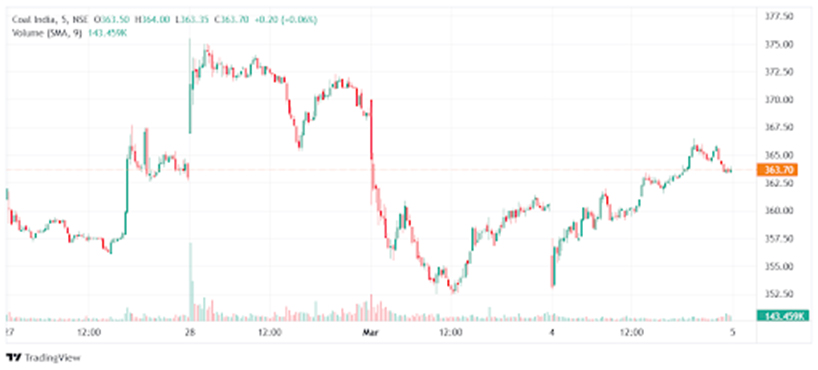 Source:
Source: 